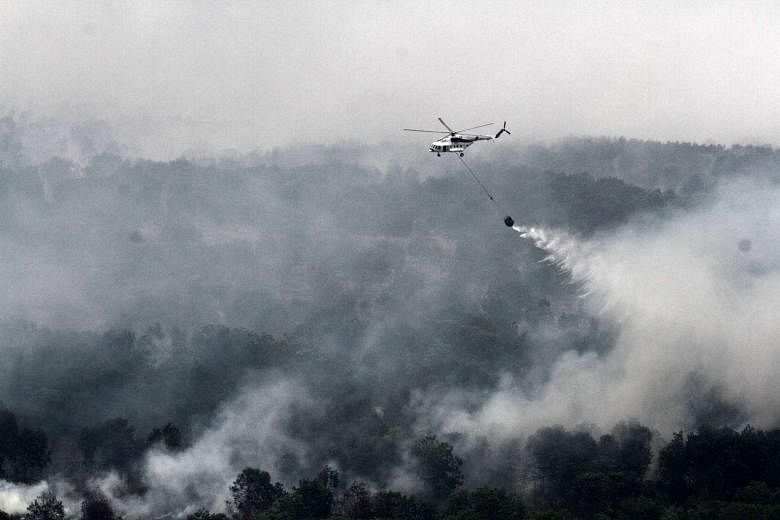The country has seen disasters strike one after another.
After fires raged in forests and on peatland in Sumatra, sickening many and even killing some due to the toxic smoke they spread, rain started pouring almost every day and more lives are under the constant threat of floods and landslides, with dozens lost in the most recent disaster in West Java's Garut regency.
Both the forest and peatland fires in Sumatra and the flash flood in Garut have much in common in the way humans play their part in instigating or at least exacerbating devastating disasters. That said, what looks like a natural disaster is actually a man-made calamity.
In Sumatra, someone might have lit a fire before the flames escalated. Burning trees and bushes is known as the cheapest method to clear land and is therefore commonly practiced. The fact that slash-and-burn practices recur mirrors ineffective monitoring, not to mention law enforcement.
In its immediate response to the flash floods in Garut, the West Java Environmental Management Board says the disaster was a result of large-scale construction activities in a number of conservation forest areas, which is surely a blatant violation of the regency's detailed spatial planning.
For years the sanctuaries have been converted, for the sake of financial gain, into resorts, restaurants and hot spring facilities.
But it is very unlikely that owners of the commercial establishments will be held responsible for the disaster.
Or the local government officials who gave them permits to build their properties in the conservation areas.
The Garut disaster portrays a collective breach of green governance, which unfortunately involves parties mandated to enforce the new norms of development that the world has adopted to keep environmental destruction from worsening.
Garut is not alone as most local governments and the central government tend to compromise on the protection of nature in the name of economic growth and, hence, people's welfare.
There should be no denying that the level of disrespect for the Environment Law reflects the gravity of corruption, as former Corruption Eradication Commission deputy chief Chandra Hamzah has suggested.
This is evident in the ongoing KPK investigation into a graft case involving Southeast Sulawesi Governor Nur Alam, who has been named a suspect for allegedly accepting a kickback related to the issuance of a mining permit for a company in an area that was originally a conservation forest.
The conversion of protected forests into land that is used for commercial purposes in Garut and elsewhere should therefore raise questions as to whether bribes were involved in the permit issuance.
It can be safely said that environmental destruction can be a result of ignorance, and not just corruption, on the part of policy makers. Conversely, good governance produces environmentally friendly policies that benefit not only the people of today but also future generations.
The only option left now is to revive our commitment to sustainable development, which maintains the ability of natural systems to continue to provide the natural resources and ecosystem services upon which the economy and society depends.
The Jakarta Post is a member of The Straits Times media partner Asia News Network, an alliance of 21 newspapers.

